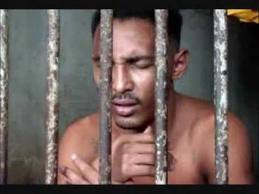The U.S. Commission on International Religious Freedom’s Annual Report has been published. The commission places countries in three “tiers”, with tier one being nations that are designated “countries of particular concern” in terms of religious freedom. In this year’s report, these nations include China, North Korea and Saudi Arabia, among twelve others.
In China for instance, the report notes the following:
The Chinese government continues to perpetrate particularly severe violations of the freedom of thought, conscience, and religion or belief. Religious groups and individuals considered to threaten national security or social harmony, or whose practices are deemed beyond the vague legal definition of “normal religious activities,” are illegal and face severe restrictions, harassment, detention, imprisonment, and other abuses. Religious freedom conditions for Tibetan Buddhists and Uighur Muslims remain particularly acute, as the government broadened its efforts to discredit and imprison religious leaders, control the selection of clergy, ban certain religious gatherings, and control the distribution of religious literature by members of these groups. The government also detained over a thousand unregistered Protestants in the past year, closed “illegal” meeting points, and prohibited public worship activities. Unregistered Catholic clergy remain in detention or disappeared.
In order to track religious freedom and religious persecution, the State Department relies on reporting from various religious groups and NGOs throughout the world.
The commission (an independent panel created by Congress in 1998) also monitors “non-state actors“, that is, individuals and/or groups within nations that have no official standing.
“USCIRF added a special emphasis on non-state actors, as their violent actions are a growing threat to religious freedom,” said Knox Thames, the commission’s director of policy and research.
“Violence perpetrated by non-state actors against religious minorities and others who conflict with their world view is increasingly common, with incidents occurring in places as diverse as Pakistan and Nigeria.”
Somalia, for example, which doesn’t make the list, is home to al-Shabaab, a U.S.-designated foreign terrorist organization that has brutally suppressed Christians and Sufi Muslims who do not subscribe to its radical interpretation of Islam.
The report also criticizes what it terms “aggressive secularism” in Europe, mentioning specifically efforts to outlaw Muslim practices in many European nations.
Because Western Europe generally has a very good record, “it’s easy to overlook the fact that there are some questions and problematic issues emerging there” related to religious dress and customs, commission chair Katrina Lantos Swett told reporters.
“In some countries a very aggressive secularism is putting people of religious faith in uncomfortable and difficult positions.”
The report focused in particular on restrictions in Western Europe on religious attire and symbols, ritual slaughter, circumcision, and the building of mosques and minarets.
“These, along with limits on freedom of conscience and hate speech laws, are creating a growing atmosphere of intimidation against certain forms of religious activity in Western Europe…”
The commission also serves in an advisory capacity to the president of the United States, as well as the secretary of state, and actively works with members of Congress to enact legislation to ensure religious liberty around the world.

